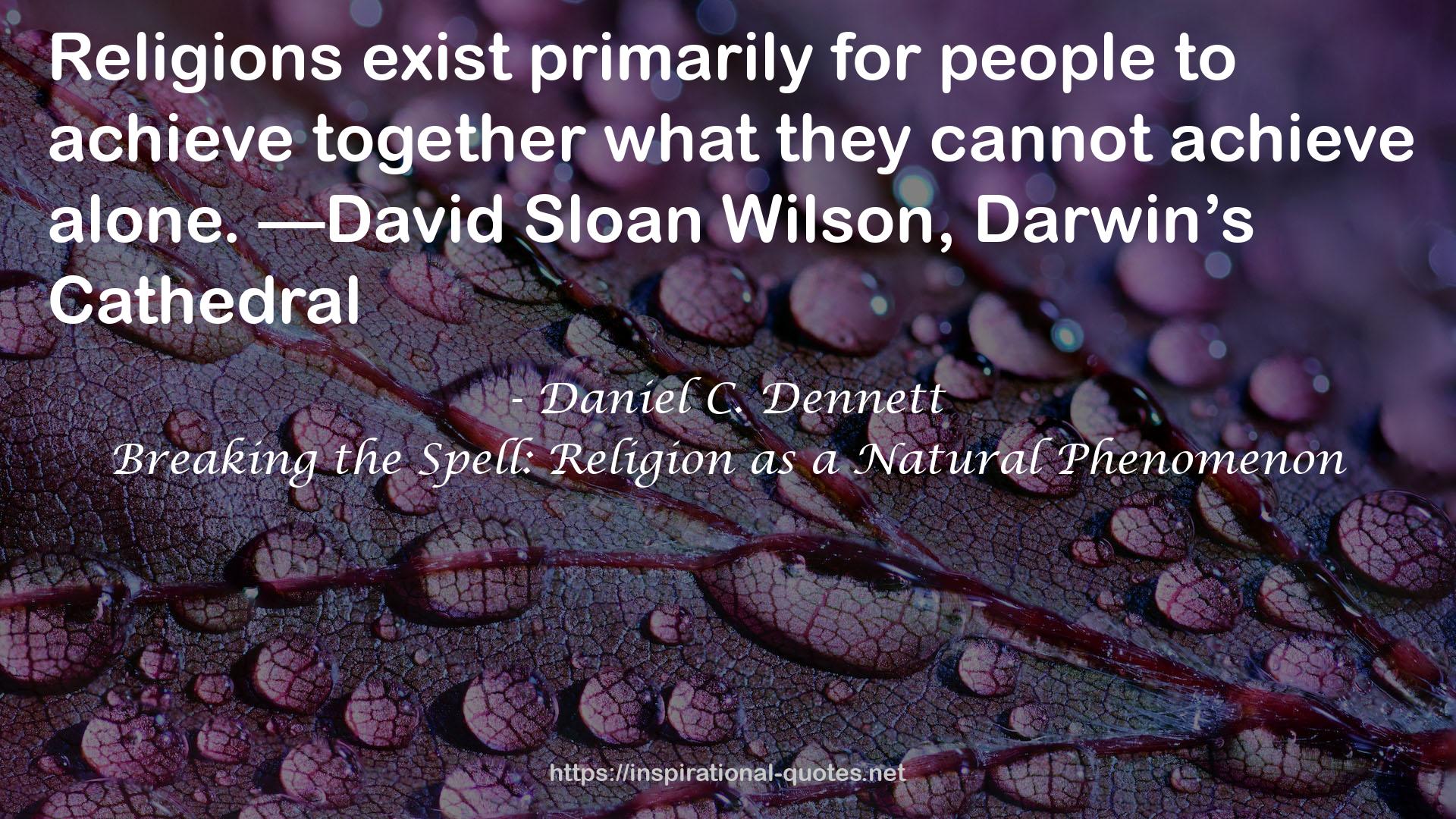Daniel C. Dennett QUOTES
108 " But recently I have learned from discussions with a variety of scientists and other non-philosophers (e.g., the scientists participating with me in the Sean Carroll workshop on the future of naturalism) that they lean the other way: free will, in their view, is obviously incompatible with naturalism, with determinism, and very likely incoherent against any background, so they cheerfully insist that of course they don't have free will, couldn’t have free will, but so what? It has nothing to do with morality or the meaning of life. Their advice to me at the symposium was simple: recast my pressing question as whether naturalism (materialism, determinism, science...) has any implications for what we may call moral competence. For instance, does neuroscience show that we cannot be responsible for our choices, cannot justifiably be praised or blamed, rewarded or punished? Abandon the term 'free will' to the libertarians and other incompatibilists, who can pursue their fantasies untroubled. Note that this is not a dismissal of the important issues; it’s a proposal about which camp gets to use, and define, the term. I am beginning to appreciate the benefits of discarding the term 'free will' altogether, but that course too involves a lot of heavy lifting, if one is to avoid being misunderstood. "

